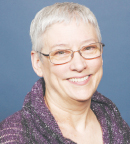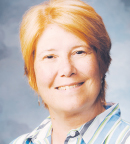THE INTERNATIONAL Association for the Study of Lung Cancer (IASLC) 19th World Conference on Lung Cancer was the largest in its history. One of the key themes of the meeting was to focus on the patient. Here are highlights of presentations from this conference that demonstrate the role of the patient’s voice and the importance of patient collaboration in research.
Oncogene-Driven Patient Support Groups
PATIENTS WITH five rare, but targetable, lung cancer mutational abnormalities are forming online communities, which represent a key resource for developing and testing new targeted therapies.1 The five groups consist of patients whose tumors have alterations in ROS1, RET, ALK, EGFR genes, or exon 20 (EGFR and HER2) insertions, all targetable with approved or experimental drugs.
“The five online groups offer hope, support, education, empowerment, and connection for people, so they can live well with lung cancer despite a dire prognosis.”— Janet Freeman-Daily
Tweet this quote
Patients with these rare forms of lung cancer are scattered geographically and have little access to support and information. The Internet has broken through their isolation, offering community and support for these oncogene-driven patient groups.
“The size of our Facebook group now exceeds the largest clinical trial cohort of patients with ROS1-positive cancer,” said Janet Freeman-Daily, a patient with lung cancer from Seattle and cofounder of The ROS1ders, a community of patients and caregivers living with ROS1-positive cancer. “The five online groups offer hope, support, education, empowerment, and connection for people, so they can live well with lung cancer despite a dire prognosis,” she told listeners.

Janet Freeman-Daily
All five support groups have Facebook groups and four have websites. The ROS1ders has 323 registered members from 22 countries; the RET Renegades was recently formed and currently has 43 members; ALK Positive has 1,210 members from more than 40 countries; the EGFR Resisters has 650 registered members from 24 countries; and the Exon 20 (EGFR/HER2 insertions) Group has 243 registered members from 22 countries.
“These numbers exceed the size of clinical trials in the respective oncogenetic cohort, and each group faces a different challenge. These groups contribute to research,” said Ms. Freeman-Daily.
For example, patients in The ROS1ders have donated specimens to create cell lines and PDX mouse models for research.

Robert Doebele, MD, PhD
“Donations from this group have already resulted in four new cell lines that have been distributed to research laboratories,” said Robert Doebele, MD, PhD, of the University of Colorado, Aurora, who is involved in the development program for entrectinib for ROS1-positive non–small cell lung cancer (NSCLC). [Editor’s Note: See the October 25, 2018, issue of The ASCO Post for more on a clinical trial of entrectinib conducted by Dr. Doebele and presented at the 2018 World Conference on Lung Cancer.]
“These patient groups have greatly accelerated both translational and clinical research.”— Robert Doebele, MD, PhD
Tweet this quote
The ALK Positive support group awarded research grants to study anti-ALK immunologic response, overcome primary resistance in ALK-positive lung cancer, and target the complement pathway in this type of lung cancer. The Exon 20 Group provides patient navigation and grants to explore drug resistance, and the EGFR Resisters hosted a scientific think tank.
“These patient groups have greatly accelerated both translational and clinical research. They support each other and patient caregivers. They often know more about the disease than we do,” Dr. Doebele noted.
Emotional, Physical Toll of Lung Cancer
ADVANCES IN treatment have led to longer survival for many patients with lung cancer, with more than 2 million lung cancer survivors globally. A recent online survey sheds light on the ongoing needs of long-term cancer survivors.2 According to the survey results, the emotional toll of lung cancer is as prominent as the physical toll, if not more so, 5 years later.

Maureen Rigney, LICSW
“Long-term survivors are underrepresented in most surveys. Symptoms like shortness of breath and fatigue are just a few of the physical side effects that can occur during and after treatment,” said presenting author Maureen Rigney, LICSW, Director of Support Initiatives for Lung Cancer Alliance and a licensed clinical social worker. “Emotionally, lung cancer stigma and anxiety do not end when treatment is over. Survivors can have higher rates of distress.”
Lung Cancer Alliance conducted an anonymous online survey with 122 questions designed to ascertain the long-term needs of lung cancer survivors. The survey was conducted through targeted outreach and social media. The survey had 820 respondents, 471 (57%) were patients and survivors and 349 were loved ones of patients or survivors. Of the patients, 21% had been diagnosed 5 years or more before the survey.
Respondents were questioned about their treatment history and survivorship plans; as well as common symptoms and side effects during treatment, after treatment, and 5 years later. “The most prevalent symptoms during all three time periods were shortness of breath, anxiety, and fatigue. Emotional effects were the most problematic after treatment, even 5 years or more into survivorship,” Ms. Rigney stated.
The most common long-term side effects were shortness of breath (39%), fatigue (28%), memory problems (28%), and anxiety (25%). Financial issues were more problematic 5 years later than during and after treatment. Three-quarters of patients had surgery, 43% had a recurrence, 5% participated in a clinical trial, and only 21% had a survivorship plan. “More research is needed to understand how to support long-term lung cancer survivors,” said Ms. Rigney.
In response to the survey, Lung Cancer Alliance created an educational series including webinars and print materials called, “The Coping with... Series” designed to address the most pressing problems.
“Our findings, ranging from 6% to 13% referrals to clinical trials, exceed the national enrollment and highlight a substantial opportunity for patients undergoing cancer treatment.”— Kimberly Rohan, NP
Tweet this quote
Genomic Profiling Impacts Decision-Making
A SINGLE-CENTER retrospective analysis of patients with cancer found that comprehensive genomic profiling had an impact on clinical decision-making, including enrollment in clinical trials and changes in therapy based on genomic alterations.3 The retrospective review was based on 46 charts from patients treated from 2014 to 2017 at the Edward Cancer Center, in Naperville, Illinois—a community-based hospital.
The review identified 263 genomic alterations, 172 alterations with therapies that had a potential clinical benefit, and 11 alterations associated with a lack of response. Thirteen percent were referred to a clinical trial, and 26% had a change in therapy. Focusing on patients with lung cancer exclusively, 6% were referred to a clinical trial, and 34% had a change in therapy based on genomic analysis.

Kimberly Rohan, NP
“Our findings, ranging from 6% to 13% referrals to clinical trials, exceed the national enrollment and highlight a substantial opportunity for patients undergoing cancer treatment,” said presenting author Kimberly Rohan, NP, of the Edward Cancer Center.
Prior to the results of this study, the center ordered genomic profiling on 46 cases out of 650 new cancer cases seen at the center. As a result of the study, genomic profiling testing has increased, she said.
“The lung cancer community should advocate for more genomic testing. We need to get payers to pay for this testing. A lot of insurance companies don’t want to pay. These data will support the usefulness of genomic profiling,” she told listeners. ■
DISCLOSURE: Ms. Freeman-Daily and Ms. Rigney reported no conflicts of interest. Dr. Doebele has received honoraria from Pfizer, AstraZeneca, Ariad, Guardant Health, Takeda, Trovagene, and Spectrum Pharmaceuticals; has stock and other ownership interests in Rain Therapeutics; is a consultant or advisor with Ignyta, GreenPeptide, AstraZeneca, Pfizer, OncoMed, and Trovagene; has received institutional research funding from Ignyta; has patents, royalties, or other intellectual property with Abbott Molecular and (institution) Ignyta; and has received travel, accommodation, or expenses from Ariad, Guardant Health, and Ignyta. Ms. Rohan is on the speakers bureau of Merck, Genentech, and AstraZeneca.
REFERENCES
1. Freeman-Daily J, Elkins I, Greco L, et al: Oncogene-driven patient groups: A new era for research partnerships. 2018 World Conference on Lung Cancer. Abstract OA10.02. Presented September 25, 2018.
2. Rigney M, King JC, Ciupek A: No longer outliers: Understanding the needs of long-term lung cancer survivors. 2018 World Conference on Lung Cancer. Abstract MA07.01. Presented September 24, 2018.
3. Rohan KA: The role of comprehensive genomic profiling in the community setting. 2018 World Conference on Lung Cancer. Abstract OA04.03. Presented September 24, 2018.

